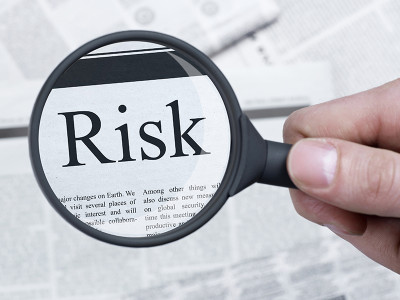WHAT IS A HEALTH RISK?
 Health risks are the chances that you will develop or acquire a disease or condition. Your age, your gender, your family or personal health history or your lifestyle are all factors that may contribute to a health risk. Health risks are often described in numbers, for example, a 20 percent chance of developing cancer, or a one in five chance of having a heart attack before age 65. These risks are estimates based on what is known about the rate or the number of various health conditions occurring across groups of people. Usually, these estimates are broken down by gender, by geographic location and by age.
Health risks are the chances that you will develop or acquire a disease or condition. Your age, your gender, your family or personal health history or your lifestyle are all factors that may contribute to a health risk. Health risks are often described in numbers, for example, a 20 percent chance of developing cancer, or a one in five chance of having a heart attack before age 65. These risks are estimates based on what is known about the rate or the number of various health conditions occurring across groups of people. Usually, these estimates are broken down by gender, by geographic location and by age.
Why Should I Care about Health Risk Information?
Understanding your health risks can help you engage in healthier behaviors and allows you to focus on certain aspects of your health that you can change to help prevent diseases. Questionnaires called health risk assessment tools can help identify risks you may not know you have. It is also important to understand your health risks in order to benefit from news and research about specific diseases and discuss that information with your doctor or other health professional.
While the media may constantly bombard us with news about risks, for example, certain foods increasing the risk of developing cancer, it’s important to read new studies closely. Most of these risks, if they even exist, are actually very small. This short article from the National Institute on Aging discusses more about how risk research is done, association versus causation and absolute versus relative risk. MedPage Today also has a Guide to Biostatistics that offers more information on risk.
How Can I Find Out My Health Risks?
Health risk assessments (HRAs) are questionnaires designed to collect your health information and use that to estimate your overall health or chance of developing a disease. HRAs can be as simple as a quick set of questions offered in a brief pencil and paper quiz, or they can be a lengthy online questionnaire that asks for a wide range of personal health information. HRAs may be provided by your physician as part of a new patient intake, by your employer as part of a wellness or health promotion activity or even made available at a community-wide health fair.
HRAs are designed to help identify areas of your health or your health behaviors that may need attention to either prevent or minimize the impact of a potential disease or health impairment.
- The National Cancer Institute website section on Cancer Causes and Risk Factors offers a wide range of reliable information about cancer risk including calculators.
- Dartmouth Medical School helped create How’s Your Health?, which allows users to look at their health in a broad way which includes follow up and specially tailored advice for different age groups.
- RealAge provides health information from doctors, epidemiologists, and medical writers. It has 65 health tests and tools customized to give advice about risks. This site requires registration.
- The American Heart Association developed My Life Check assessments to show how you’re doing in each of Life’s Simple Seven steps to live a heart-healthy life. This site requires registration.
- Siteman Cancer Center with Washington University School of Medicine has developed a disease risk assessment tool.
Original post by the Center for Advancing Health. Updated by the GW Cancer Institute January 2016.
